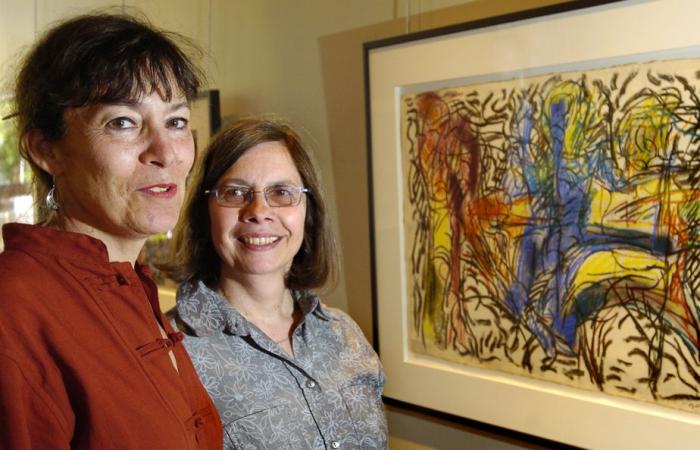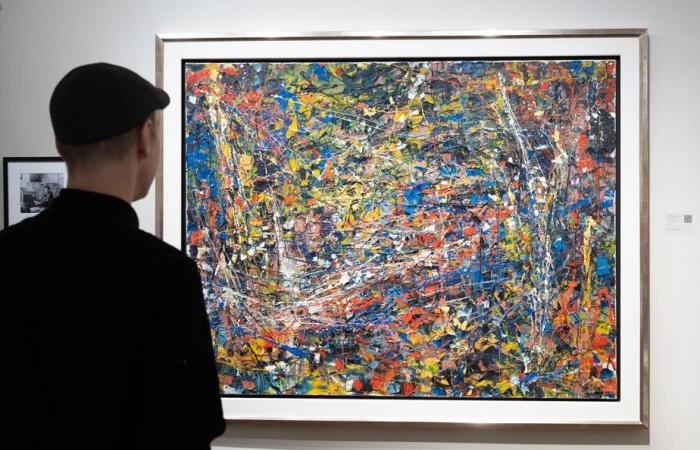Jean Paul Riopelle’s daughters, Yseult and Sylvie, will have to respect their contractual commitment to their half-brother Yann and give him a third of what they received according to the will of their father, who died in 2002.
Published at 12:48 a.m.
Updated at 7:00 a.m.
In an 18-page decision rendered Wednesday, Judge Céline Legendre, of the Superior Court of Quebec, recognized the French judgments in this case.
The “request for recognition and execution of a foreign judgment” was filed at the Montreal courthouse two years ago by Yann Fravalo-Riopelle. The daughters of the famous painter, for their part, believed that the French courts were not competent, in particular because the property targeted by the painter’s son was located in Quebec.
Yann Fravalo-Riopelle, born out of wedlock, was excluded from the will of his father, Jean Paul Riopelle, who died in March 2002. He would still have obtained certain assets located in France as a reserved heir, as provided for by law French.
The dispute arises from an agreement signed in France on October 5, 2002, almost seven months after the painter’s death, between Jean Paul Riopelle’s daughters, Yseult and Sylvie (who died last year in France), and their half-brother Yann. A private deed where we can read: “My wish is that the inheritance assets collected by me in the estate of my father Jean Paul Riopelle be distributed by thirds in equal shares between [Yann, Yseult et Sylvie]. »
But according to the facts reported in court documents, the three heirs designated by Jean Paul Riopelle in his will – his daughters Yseult and Sylvie as well as his last partner Huguette Vachon – signed a Partition Act in 2004 where they agreed to share the entire estate. A final Account would have been concluded in 2009.
It is in this context that Yann Fravalo-Riopelle, who resides in France, turned to the French courts to enforce the 2002 agreement and obtain his share of his father’s estate. He claims he was not informed of the assets his half-sisters received.
A request first rejected, then recognized
In 2015, the Auxerre Court rejected Yann Fravalo-Riopelle’s request, arguing that the 2002 agreement was a “donation affected by a formal defect and therefore void”. But in 2016, the Paris Court of Appeal overturned this judgment based on other communications which confirmed the parties’ intention to hand over the third party to Riopelle’s son. In 2017, the Court of Cassation confirmed the final and enforceable nature of the judgment of the Court of Appeal.
The painter’s daughters then plead that French judgments cannot be recognized in Quebec. Judge Legendre therefore had to rule on the jurisdiction of a foreign authority.
She first notes that “the Defendants have never argued in France that the French authorities were not competent” and emphasizes that Sylvie was domiciled in France until her death.
“None of the exceptions to the recognition of a foreign judgment apply in this case,” she judges.
PHOTO MARTIN TREMBLAY, LA PRESSE ARCHIVES
A painting by Jean Paul Riopelle
Yann Fravalo-Riopelle also requested an order allowing him to know the nature and value of the assets at the time they were collected and an order for the sharing of the assets received by his half-sisters so that he obtains the share to which he would be entitled.
Judge Legendre indicated, in February 2023, that the court would deal with the two questions separately. The request for recognition had to be examined first, then the requests for accountability and sharing secondly.
In the conclusion of her judgment, she wrote: “Once the Court recognizes the French judgments, the Claimant will have to continue his legal proceedings. He requests an account of which the Defendants announce a challenge. How will the disputed assets be identified? The Defendants argue that a certain sharing has already taken place. Are there truly any disputed assets remaining? »
In short, the story is still far from over.







